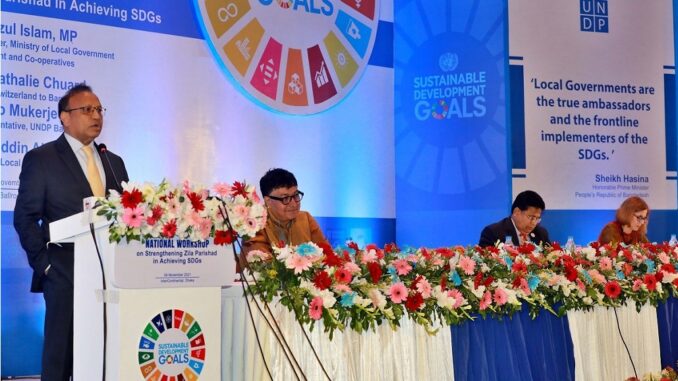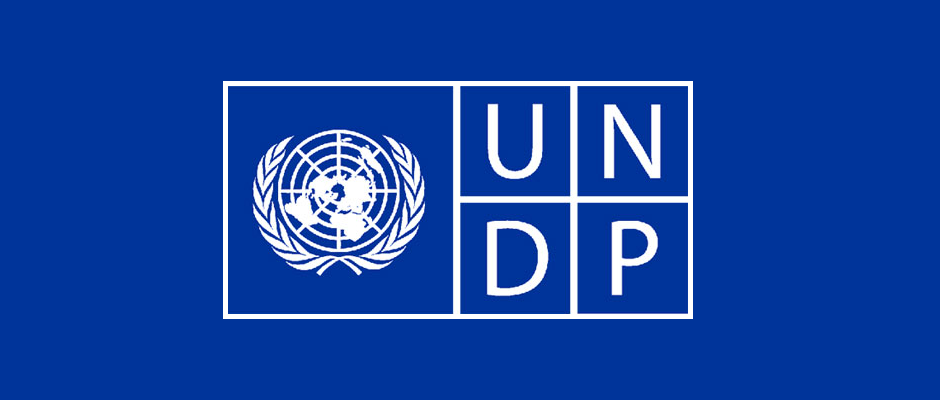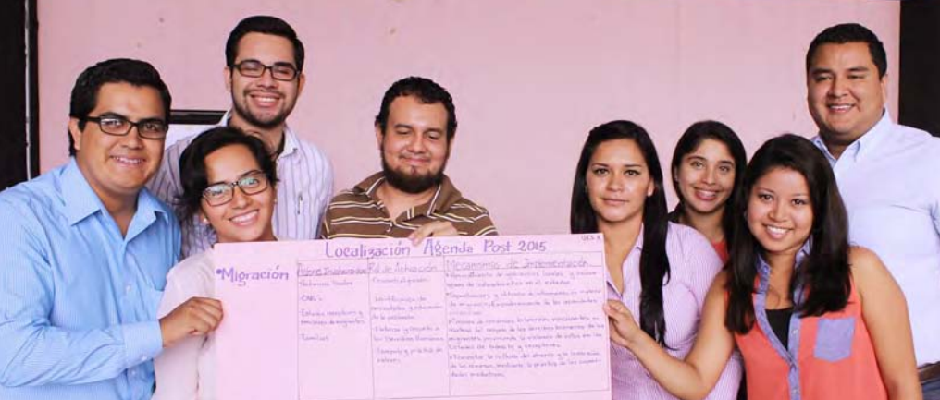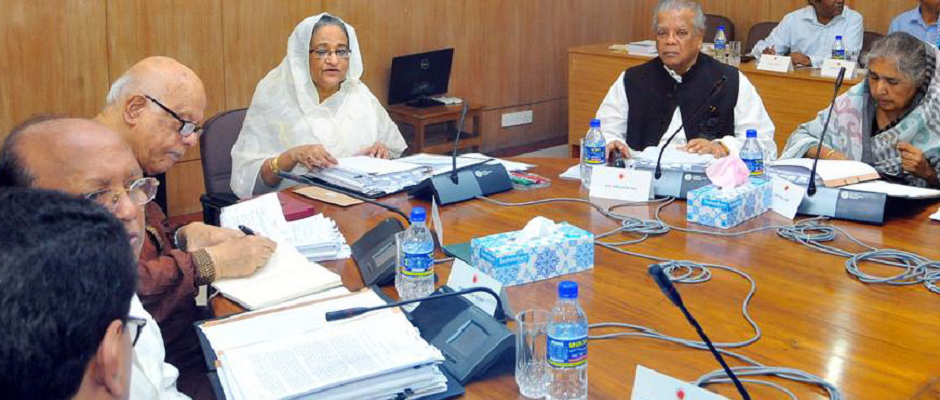
On November 4th, 2021, the United Nations Development Program (UNDP) in Bangladesh and the Government of Bangladesh’s Ministry of Local Government, Rural Development and Cooperatives (MLGRD&C) organized a workshop titled “Strengthening Zila Parishad in Achieving SDGs.” The Zila Parishad is a local government institution in Bangladesh.
The chief guest, LGDR&C Minister Tajul Islam MP, said, “Thought [sic] the local government institutions are now stronger and more people-friendly than any time in the past, but Zila Parishad still needs further support to build their capacity if we want to achieve the SDGs by 2030.” He went on to add that “Zila Parishad can solve their problems by utilizing the local resources properly. Coordination with other local government bodies is essential for that.”
Sudipto Mukerjee, Resident Representative of UNDP, attended the workshop as a special guest. While addressing the workshop, he said, “UNDP has been working with the Government of Bangladesh for many years. We are also supporting the Government to localize the SDGs, and also strengthening the capacity of Upazila and Union Parishad. Soon, under the leadership of the Principal Coordinator SDGs at the PMO [Prime Minister’s Office] and the [MLGDR&C] we will as the UN system, together with the support of the international financial institutions and several international development partners, strengthen the capacities in select lagging districts to localize the SDG and in turn help ensure that no one is left behind. Given that we are already in the Decade of Action, it will require all out efforts to amplify and strengthen the role of Zila Parishads in good quality data gathering and analyses. I have no doubts that Bangladesh will yet again become a poster child in SDG achievement.”
Chairing the workshop, Senior Secretary of the Local Government Division Helaluddin Ahmed thanked UNDP for their continued support to build the capacity of various local government institutions and hoped the support would continue further to increase the capacity of Zila Parishad. He said, “In order to coordinate development activities at the district level, capable and people-friendly Zila Parishad is necessary.”
In addition to representatives from the UNDP and MLGRD&C, various local government officials, development partners, academics, experts, and civil society representatives were also present.
Other special guests included Nathalie Chuard, Ambassador of Switzerland to Bangladesh, and Dr. Mobasser Monem, Professor of Public Administration at the University of Dhaka. Amb. Chuard highlighted the number of projects supported by the Swiss Agency for Development and Cooperation (SDC), which are currently underway through a partnership between Bangladesh and Switzerland, and she noted that “an integrated whole of society approach can ensure inclusive development to achieve SDGs for Bangladesh.” Dr. Monem presented the keynote paper on “Zila Parishad: Challenges, Prospects and Way Forward.”
This article originally appeared on UNDP Bangladesh on November 4, 2021.




